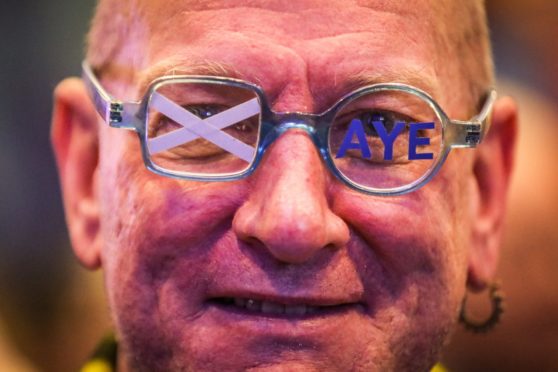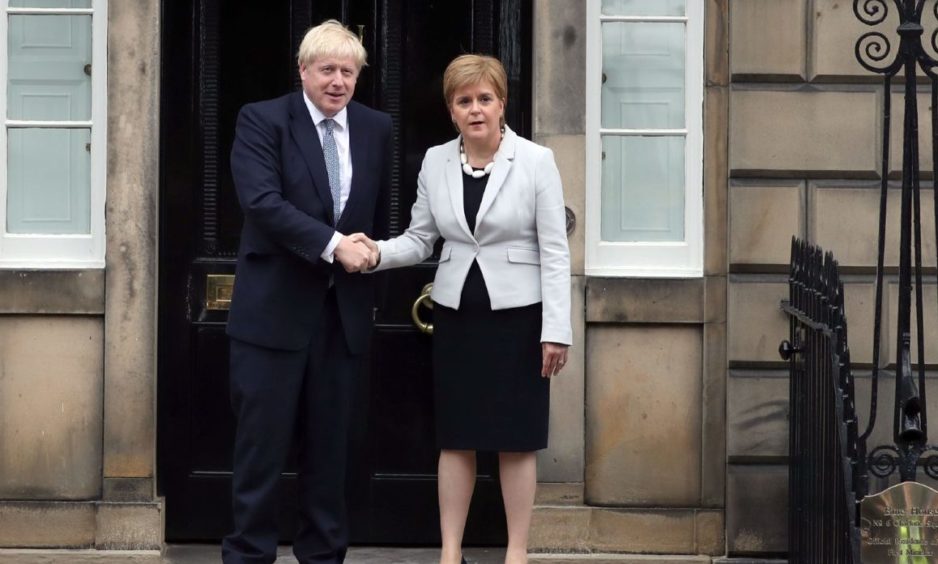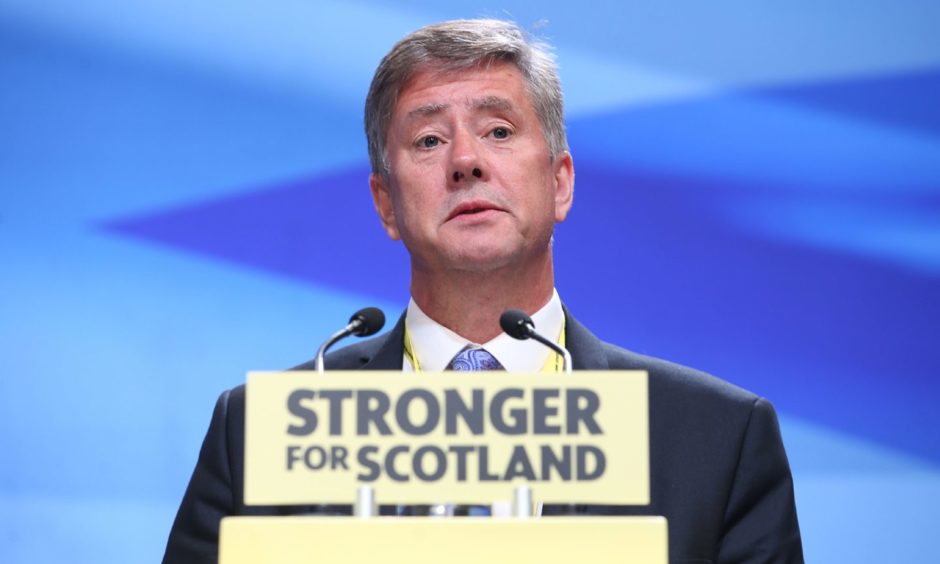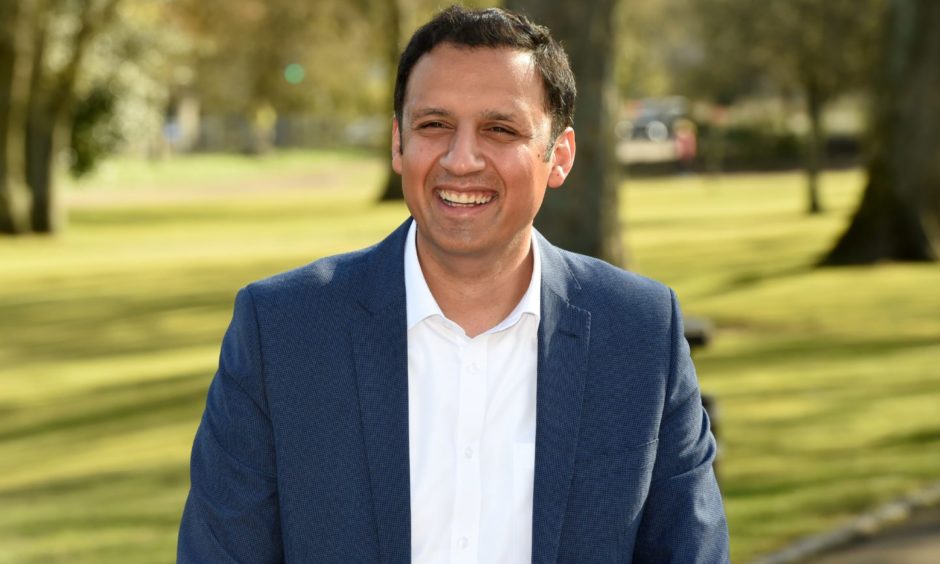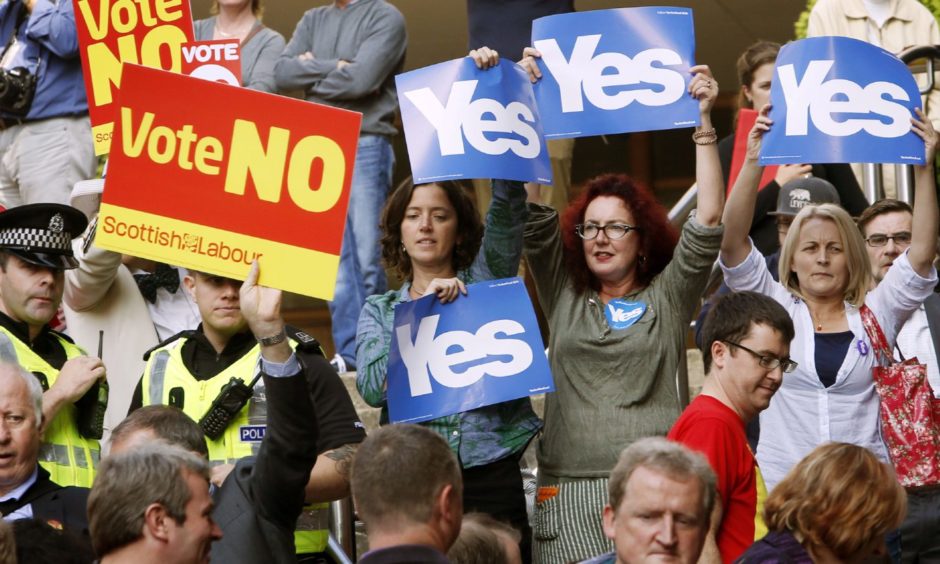English voters believe Scots have the right to hold a referendum on separation after returning a pro-independence majority at this month’s Scottish Parliament election, a new poll has found.
The Savanta ComRes poll for Left Foot Forward found a plurality – 39% – of voters across Britain back Scotland’s right to hold a new vote in the wake of the SNP’s election victory, while 34% say they do not.
A pro-independence majority was returned to Holyrood on May 6, with the SNP and Greens commanding 72 of Holyrood’s 129 seats.
The poll of 2,131 adults across Britain between May 14 and 16 found 38% of voters in England believe SNP leader Nicola Sturgeon has the right to call a new referendum following the result, while 34% do not.
It found Scottish voters believe there is a clear right to a second independence vote, with 46% supporting this view compared to just 32% who do not.
Ms Sturgeon is expected to push on with plans to hold a new referendum after being sworn in as first minister and has spoken in the past of the importance of domestic and international pressure if the UK Government continues to oppose a vote.
She has said any such rejection would see her attempt to pass a referendum bill through Parliament without Westminster consent and dare the prime minister to challenge it at the Supreme Court.
In response to the poll, the SNP insisted Boris Johnson’s “undemocratic attempts” to deny the mandate for a new independence referendum “will not hold.”
The party’s depute leader, Keith Brown, said: “This poll shows that people across the UK – including almost 60% of those expressing a view in Scotland – believe that people in Scotland have the democratic right to choose our own future in a post-pandemic referendum.
“The Holyrood election delivered a cast-iron democratic mandate for an independence referendum. And Boris Johnson’s undemocratic attempts to ignore that free and fair election result and deny the people of Scotland the right to choose a better future as an equal, independent country are completely unsustainable and will not hold.
“This poll also piles more pressure on Labour leader Keir Starmer’s muddled position, and puts him at odds with his own party members who overwhelmingly support Scotland’s future being in Scotland’s hands – not Boris Johnson’s.
“Westminster has shown it is incapable of delivering the change that is required for Scotland’s recovery from the Covid-19 crisis.
“If the UK remains a democracy, then people in Scotland must have the right to decide our own future, so we can choose a better path than Boris Johnson’s shambolic Tory government and continue to build a fairer country.”
New Scottish Labour leader Anas Sarwar spent the Holyrood election campaign attempting to move the debate away from independence and UK leader Sir Keir Starmer has previously called on the prime minster to rule out another vote.
However, the poll found a majority – 51% – of Labour voters across Britain back the right to another independence referendum, compared to just 21% who do not.
It comes after a newly elected Scottish Labour MSP criticised her party’s “muddled” stance on independence and argued it is in need of an “honest assessment” of its prospects going forward.
Writing in the Scottish Left Review, South of Scotland MSP Carol Mochan claimed Labour “simply is not seen as a serious challenger to the SNP by most”.
“The sad fact is, though we are no longer met with anger on the doorsteps or the phones, what remains is a worrying indifference,” she said.
“When the dust settled over the weekend following the election count, we were not even close [to coming second]. That is of serious existential concern to a party that once utterly dominated Scottish political life.
“If we reach the next Scottish Parliament election with the same muddled priorities, I think it is more than likely our vote will drop further.”
Meanwhile, one in four (27%) Conservative voters back another independence vote, though a majority (52%) are opposed.
Across Britain, 45-54 year olds were most in favour of Scotland pushing ahead with another vote, with 45% in favour. More than a quarter of voters (27%) did not have a view on the issue, suggesting opinions could change rapidly.
